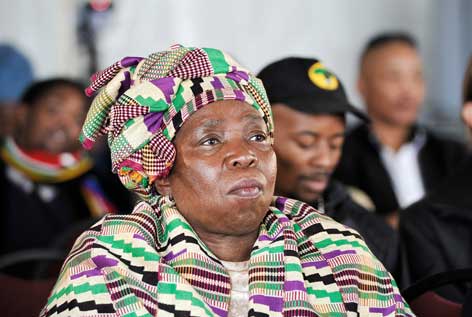16
Jul

By Sheila Naturinda | Fri, Jul 13, 2012
Even though agriculture and infrastructure weren’t as such a priority in the 70s, today women have developed new and fresh dynamics to empower them, facilitate and enhance them run agriculture.Agriculture is the backbone of almost all African states and women play a larger role in the sector and the outcomes of agriculture into trade help the development of the continent with women as key drivers of the trade.
The 19th ordinary summit is held under the theme;" Boosting intra-African trade."
At the ongoing African Union in the Ethiopian capital Addis Ababa, women under their different agencies came up to launch an initiative to empower African Women in agriculture (AWEG).The organizations behind the initiative were unveiled yesterday as; the African Capacity Building Foundation (ACBF) in conjunction with the Gender is my Agenda campaign (GIMAC) and all coordinated by Femmes Africa Solidarite (SAS).
In view of these issues, one major objective expected by women from the AU heads of states at their meeting is to see what can be done to improve the situation of women in trade in Africa.
According to Dr Frannie Leautier the Executive Secretary of African Capacity Building Foundation, EWAG is championed by African Heads of States with a renowned record of service for promoting women's empowerment and agriculture and by key private sector patrons from the Continent.
Liberian President Ellen- Johnson Sirleaf and President Paul Kagame of Rwanda are already champions of the initiative as co-Chairs, and preparations are on-going to get more African leaders on board by the duo’s conviction.
“We hope at the next meeting the two presidents would have rallied their colleague heads of states to announce their support to empower their women in agriculture,” Dr Leautier said.
She said EWAG has found a champion in President Ellen John Sirleaf, who gave impedance to three fundamentals challenges that women face, “The crisis affecting women in Africa centres around three F’s – Fuel, Food and Finance, and Dr Sirleaf suggested that a panel of heads of state champion the empowerment of women in agriculture, to tackle this crisis.”
The Initiative’s major drive is to push for the usage of budgetary allocations to target women both directly and indirectly, and have a share of the foreign and regional development aid allocated to empowerment of women in economic and productive sectors especially agriculture.
The initiative is also geared at designing and developing a system of monitoring indicators of women progression in accessing agricultural inputs such as land, seeds and fertilizers, machinery and finances and to also map out and share the best practices in support for women in agriculture that is amplified and replicated in the whole of Africa.
The NEPAD boss Dr Ibrahim Mayaki, at the media briefing prior to the launch of Empower Women in Agriculture (EWAG) Initiative in Addis Ababa yesterday said if Genetically Modified foods are used in agriculture productions and the major producers are women, then there is a boost onto women’s’ incomes and household development across the continent.
Mr Mayaki also said the role of civil society had awoken the sleeping mentality on agriculture and women in the continent, and therefore women were being targeted- hence a reversal of top down processes.
“The role of civil society has helped us the technocrats to think differently and target the right priorities. We now know that we can’t develop agriculture if we ignore the role of women players in the sector,” Mr Mayaki said.
He said NEPAD hadn’t initially thought much about the role of women in developing agriculture, calling it a “technocratic bias.”
The women players however declined to give details of how the initiative will be funded; preferring to say it was started using local funds or ‘founders’ sweat’ but probably more funds after the launch would be found.
It was also pointed out that peace, security and stability are necessary ingredients for the boosting of a continental free trade zone and that manufactured goods in Africa already accounted for 46% of intra-African trade and that since infrastructure is now of a higher standard than before, progress would be escalated in at least five years from now.
The NEPAD CEO stated that the reverse of a top-down process has enabled a bottom up process, which now highlights a redefinition of new priorities in developmental policies. He said Africa cannot transform agriculture without involving women.
Dr Leautier said the partnership with NEPAD will be a very important one because of the specific attention and opportunities women will be exposed to. “When an African Woman grows food, she grows what her pot will look like – not mono-cropping, but integrated farming, she said.
